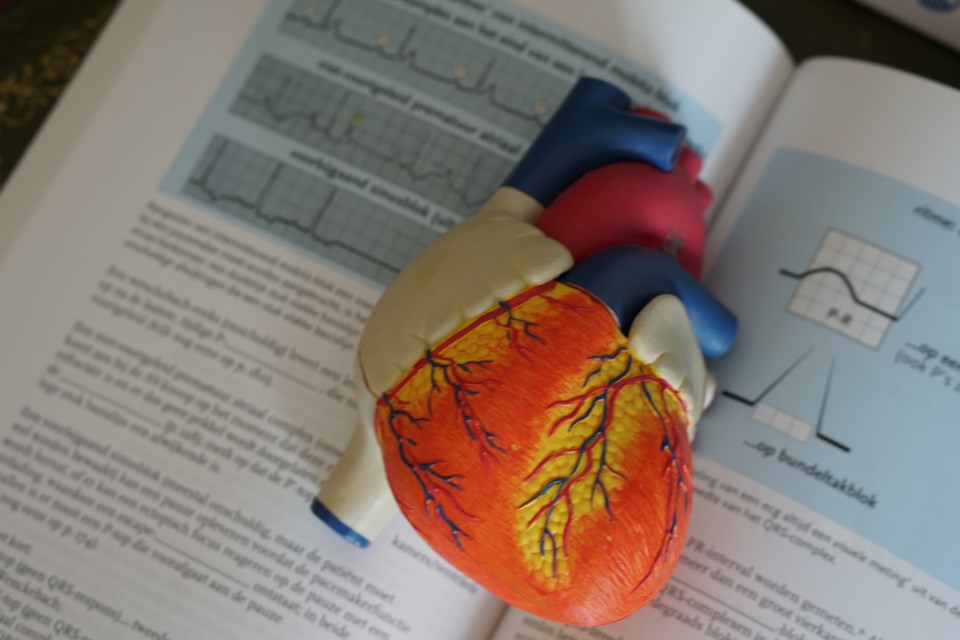The Longmont Leader accepts contributions, photos, and op-eds for publication from community members, business leaders and public officials on local topics. Publication will be at the discretion of the editor and published opinions do not represent the views of the Longmont Leader or its staff. To submit a contribution, email [email protected].
Heart disease is often thought to be more of a health issue affecting men. However, it’s the most common cause of death for women in the United States, causing about 300,000 deaths annually. Because symptoms in women can differ from those in men, it can be more difficult to spot the signs. By understanding the symptoms and making healthier lifestyle choices, you may help prevent your risk.
February is American Heart Month, so your heart health may be top of mind. Knowing the symptoms, risk factors and heart-healthy lifestyle tips may help protect you.
Heart disease symptoms for women
Symptoms may range from the common signs like pressure in the chest, which is similar for both men and women. However, women are more likely than men to experience a variety of other symptoms. This may be because women tend to have blockages in smaller arteries, as well as their main arteries. This is a condition called small vessel heart disease or coronary microvascular disease. Symptoms include:
·Pain or discomfort in the neck, jaw, shoulder, upper back, abdomen or back
·Nausea
·Vomiting
·Sweating
·Lightheadedness
·Fatigue
You may not experience any symptoms if your heart disease is “silent.” This could mean you may not be diagnosed until you experience more severe symptoms, such as:
·Heart attack
·Arrhythmia
·Heart failure
If you experience any of these symptoms, call 911 right away.
Lower your risks of heart disease
While there may be risk factors you can’t control, making the choice to start a heart-healthy lifestyle is one way to help make an impact. In fact, studies show that healthy choices have resulted in 330 fewer women dying from heart disease per day.
Consider these changes to help lower your risk:
1. Quit smoking
Smoking damages the heart and blood vessels, which may cause heart disease. Even long-time smokers may see rapid health improvements and reduce their heart attack risk, if they quit.
2. Exercise regularly
The American Heart Association (AHA) recommends adults get at least 150 minutes each week of moderate-intensity aerobic activity or 75 minutes each week of vigorous aerobic activity to help stay healthier.
3. Eat healthier
A diet emphasizing fruits and vegetables, whole grains, low-fat dairy products, poultry, fish and nuts may help control your weight, cholesterol and blood pressure. Limit saturated fats, trans fats, sodium, sweets and sugary beverages.
4. Manage your stress
The most common types of stress that can impact your heart include, workplace stress, financial stress, caregiver stress and disaster-related stress. Sleep, exercise and meditative breathing can all help ease stress.
5. Limit alcohol
The AHA recommends drinking in moderation, which means consuming an average of one drink per day for women. Excessive drinking may lead to increased heart health risks.
6. Monitor your blood pressure
Blood pressure numbers of less than 120/88 mm Hg are considered within the normal range. If your numbers are outside of the normal range, home blood pressure monitoring may be beneficial to help keep tabs on your health, but don’t substitute it for regular visits with your doctor.
7. Prioritize sleep
Poor sleep can be linked to an increased risk for high blood pressure, which may cause heart disease. The AHA found most people need six to eight hours of sleep each day. Too much above or below that range may have an effect on your heart.
For this American Heart Month, take the time to understand the disease and if you may be at increased risk. Heart disease doesn’t just occur in older women. Young women, especially those with a family history of heart disease, should also take precautions. Don’t wait for the symptoms to appear – take preventable action to help maintain your heart health.



